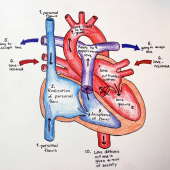
Abstract: This case study follows the eight-year development of an environmental anthropology course, beginning with my own failure as a teacher to provide students an adequate way of thinking and acting amid planetary crisis. It then turns to a diagnosis of three challenges students face when thinking about global ecological futures: (1) an inability to act, (2) an inability to imagine how an individual can make a difference, and (3) an inability to conjure an adequate sense of hope. For each of these challenges, I introduced a conceptual metaphor designed to help us think anew, where a conceptual metaphor is a trope that enables thinking about one conceptual domain in terms of another. The metaphor of wayfaring helped us overcome the conviction that one must become an expert before acting. The metaphor of seed planting helped us reimagine how an individual can contribute to larger-scale change. Finally, I introduce two new conceptual metaphors for thinking about hope amid planetary crisis—weedy invasions and broken jars. By working with these tropes, I propose an alternative way of thinking about hope that does not rely on a sense of optimism. Along the way, I make two broad arguments. First, thinking through novel conceptual metaphors, what I call metaphor work, is a worthwhile technique for approaching planetary crisis with students. Second, an undergraduate seminar is an excellent place to experiment with new ways of thinking about, and living in, the Anthropocene.
Continue Reading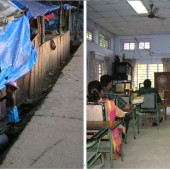
Among all the pressing needs for educational innovations that we face today, arguably the most imperative is the need to elicit learners’ active collaboration towards a ‘Great Transition’ into a secure and sustainable future for humanity. Among the numerous challenges that this endeavour entails, the anticipated arrival of unprecedented numbers of climate refugees will severely challenge the capacities of host institutions to maintain human security – connecting to a second pressing need, namely to promote and maintain cultural safety for newcomers and hosts. We focus on the question how compatible those two educational projects might be. To what extent could a Transition curriculum include and inform a curriculum for cultural safety, and how could a curriculum devoted to the principles of decolonisation internalise the need for living within our means? Neither one can be successful without the other. In general the two educational projects are reconcilable and inform and reinforce each other. However, some specific objectives of the Transition curriculum, mainly in the affective domain, require careful attention to cultural differences and reasoned compromise.
Continue Reading
Abstract: Inspired by the entanglements of the Cosmos, this essay is a response to the JSE special call for papers on future casting sustainability education. The author’s approach reflects an integrated view of humans, moving beyond Anthropocene, capitalism, and Donald Trump to the idea of the Chthulucene, an era of reciprocity amongst human and more-than-human. In challenging times, such as this, sustainability education can look towards the future through hopeful pedagogies of interconnection through reciprocity, storytelling, and embracing the bio-cultural diversity of Earth.
Continue Reading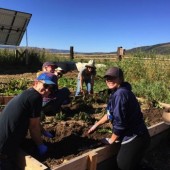
Abstract: Offers a brief introduction to the Journal of Sustainability Education issue focused on hope and agency, highlighting hope and agency as essential aspects of sustainability education in the Anthropocene.
Continue Reading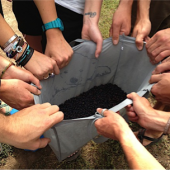
Abstract: The authors engage in a written dialog about their experiences with and understanding of hope and agency in the context of higher education happening in the midst of many converging crises of sustainability. The authors discuss their personal and professional views about teaching sustainability and about leading and collaborating in sustainability-oriented efforts. They consider sustainability and sustainability education efforts as both internal processes that take place within the person and external processes oriented toward others and the world. They explore questions of leadership and authority in relation to hope and agency and discuss the importance of making and communicating honest appraisals of the current situation of humans and the biosphere as a basis for fostering clear-eyed hope and agency in themselves and students.
Continue Reading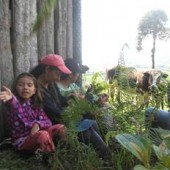
PDF: Kassam&AveryJSESpring2013 The Oikos of Rural Children[1]: A Lesson for the Adults in Experiential Education Karim-Aly S. Kassam, Department of Natural Resources & American Indian Program, College of Agriculture and Life Sciences, Cornell UniversityLeanne M. Avery, Department of Elementary Education and Reading, State University of New York College at Oneonta […]
Continue Reading